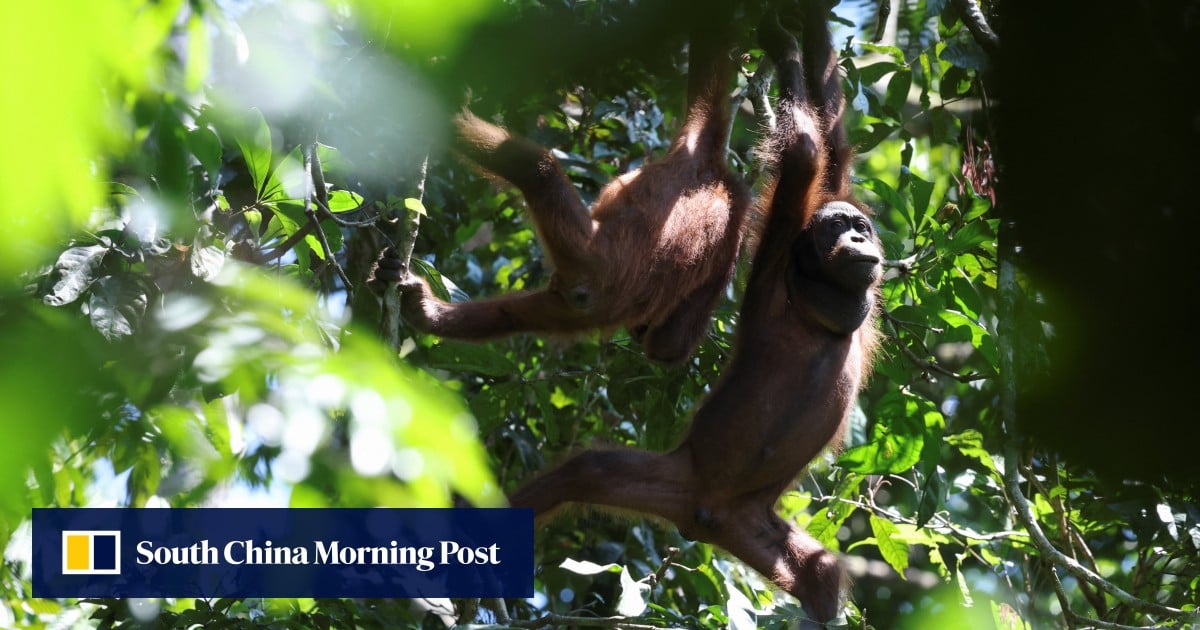On Sunday, Plantation and Commodities Minister Johari Abdul Ghani said any gifted orangutans will stay in Malaysia.
“We have decided to keep our orangutans in their own natural habitat,” he told reporters after launching a World Orangutan Day celebration organised by the Malaysian Palm Oil Green Conservation Foundation at the Sepilok Orang Utan Rehabilitation Centre in Sandakan.

“All conservation activities will be carried out in forest areas or forest patches in oil palm plantations with high conservation value,” he said, according to the official Bernama news agency.
“These … areas provide space for orangutans to move freely, find food, and reproduce without interference from humans or other activities.”
Johari cited a census conducted between May 2014 and March 2017 that recorded 10,000 to 15,000 orangutans in Sabah and some 2,000 in Sarawak.
He said the palm oil foundation would be allocating 1.23 million ringgit (US$277,000) to Hutan, a community-based group formed to conserve threatened habitats and wildlife species while promoting sustainable management of natural ecosystems, to carry out another census.
Under the orangutan conservation programme, “importers of Malaysian palm oil can choose to sponsor one or more orangutans”, Johari said

“The funds will be used to implement various programmes including collaborating with the rangers and experts to monitor the presence, safety and condition of these wild animals.”
China has long used panda diplomacy as a form of soft power.
It loans pandas to foreign zoos under strict conditions, including returning any offspring to join China’s breeding programme.
Palm oil is used in foods such as cakes, chocolate and margarine, as well as cosmetics, soap and shampoo.

